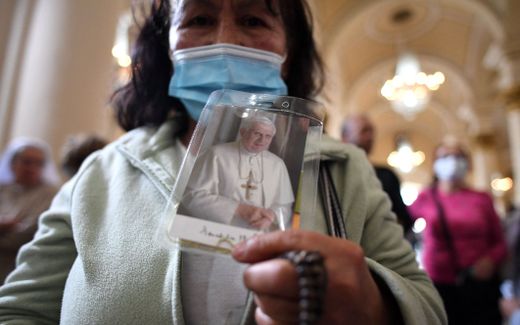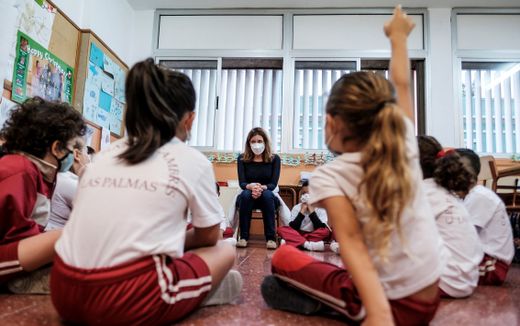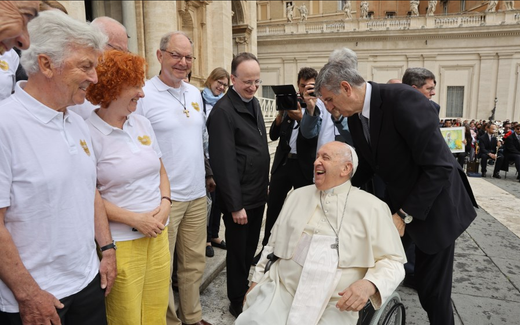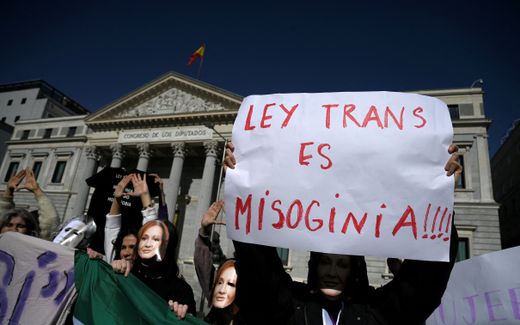Column from Spain: The abuse scandal could mean the end of the Roman Catholic Church in Spain
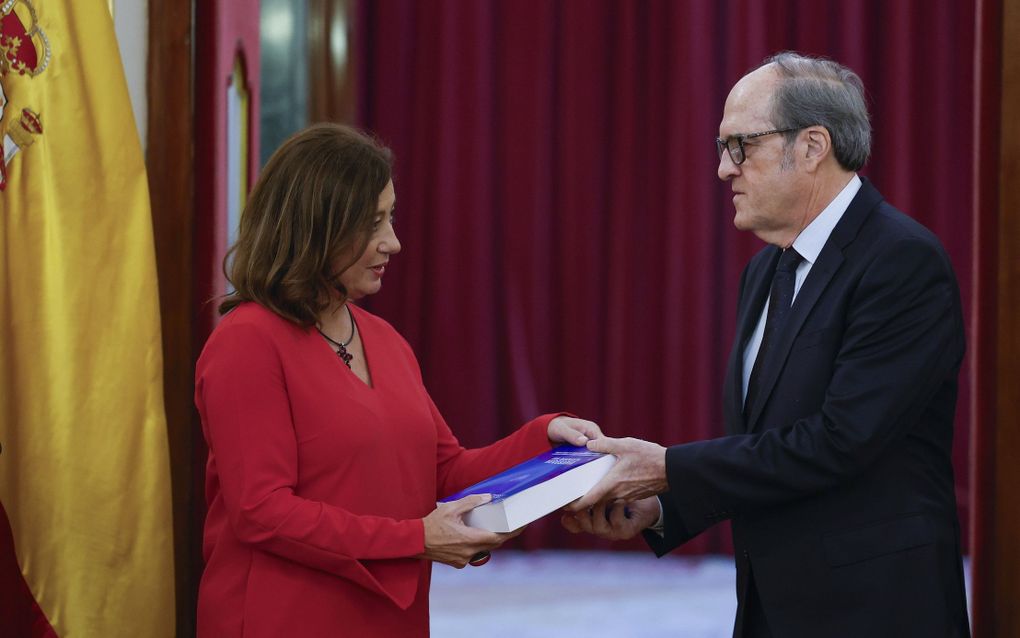
Spanish Ombudsman Angel Gabilondo (r.) delivers to the Speaker of the Spanish Congress Francina Armengol (l.) the Ombudsman's report on allegations of sexual abuse in the Spanish Catholic Church, in Madrid. Photo EPA, Mariscal
Christian Life
Hundreds of thousands of Spanish men and women have been abused as children, a new report claims. The Roman Catholic Church may fear for its existence, Jorge Ruiz Ortiz writes.
On October 27, a piece of news came to light that, given its magnitude, could generate an earthquake of incalculable consequences for the history of Spain. However, it could also, for various reasons, on both sides, very well come to nothing.
The Ombudsman presented a report of almost 800 pages, in which he stated that 1.13% of the adult population had suffered sexual abuse in the Roman Catholic Church when they were minors; that is, 400,000 people, practically all of whom would have been at the hands of priests and religious leaders.
Personal testimony
The report comes after a request from the Congress of Deputies (March 10 2022) and will have to be presented to Congress on a date yet to be determined. The report was based on a demoscopic survey of 8000 people and was accompanied by the personal testimony of 487 people.
It came as an absolute surprise to the whole country and, of course, also to the Roman Catholic Church. Its Episcopal Conference met immediately after hearing the news. At a subsequent press conference, the Archbishop of Barcelona and President of the Episcopal Conference, Cardinal Omella, while apologising to the victims, questioned the report from the outset, pointing out the absence of real cases and the fact that it was based on an extrapolation of a sample from a survey. "This figure is a lie," Omella simply stated.
Light
The Roman Catholic Church had decided not to participate actively in the preparation of the Ombudsman's report, although it promised to provide the information requested.
However, this disqualification of the report by the Episcopal Conference could be seriously challenged by data from the Roman Catholic Church in Spain itself. In 2019, offices for the protection of minors and the prevention of abuse within the Church were created. They were to research potential abuse cases in the Church. The offices received 728 testimonies of sexual abuse of minors between its creation and December 31, 2022. At least 927 victims were involved. And that number occurred in only three years, with a pandemic happening in between. And besides, these are only the cases that are reported or have come to light.
Society and the Church are much more aware of the problem of sexual abuse nowadays. Unlike in the past, abusers can easily end up in prison for their crimes. If this is the official number of cases that only happened in the last three years, is it really unreasonable to think that 400,000 minors have been abused in Spain from the 1930s until now?
Institution
It does not seem very wise to "deny the major" in this argument. We should not deny the first of the two premises of an argument, saying that it is impossible that there have been 400,000 victims of child abuse in Spain because we do not have the corresponding 400,000 complaints.
To deny everything on this basis would be to question one of the foundations of the modern state, which relies continuously on statistics in all areas to carry out its policies. In fact, the word "statistics" comes etymologically from "state", and it is not for nothing that, in this etymological sense, "statistics" means primarily "relating to the state". Is the Episcopal Conference going to deny all state use of statistics, or will it only do so with regard to the sexual abuse of minors in the institution over which they preside?
Moral authority
The problem launched by the sexual abuse report is of such magnitude that, if accepted, it could practically do away with the Roman Catholic Church in Spain. To begin with, it would be, quite simply, the definitive end of its reputation and any moral authority it may still have left among the people.
But it is not only that: the problem is also material. The state could, in response to this report, decide to provide financial compensation to all those who present themselves as victims of sexual abuse in the Roman Catholic Church. If the Roman Catholic Church has to pay for these compensations, we could be talking about the end of the Roman Catholic Church in Spain, also materially speaking.
Hierarchy
However, in the current moral and spiritual state of affairs, there are also reasons why the denunciation of this report may come to nothing or very little. To begin with, the more clerical media have aligned themselves with the arguments of the episcopal hierarchy. But, in general, it must be said that the media's treatment has been far from creating as much scandal as possible.
The national news these days vibrates rather with what concerns the amnesty agreement between the socialist party and the Catalan pro-independence parties for those convicted for the events of autumn 2017. That information focus has suddenly changed during this week.
Euphemism
But there is still one factor to take into account that may even hush the progressive press on this issue: 82% of the victims in the report are men at the hands of men. In other words, in relation to the Roman Catholic Church, the label "sexual abuse" is a kind of euphemism for not talking about the real, gigantic and endemic problem it has within its ranks, which is none other than homosexuality, traditionally called sodomy.
This is certainly not entirely in line with the eminently pro-LGTBI discourse of almost all the contemporary press in Spain. Is this relationship between homosexuality and pederasty accidental within the Roman Catholic Church only, or is it also applicable, statistically speaking, to all areas of society?
One last important point: Pope Francis I has extraordinarily summoned all the Spanish bishops to Rome on November 28. This convocation was made just a few days after the Spanish Ombudsman's report was published. The last time something similar happened was in 2018, also in the context of the sexual abuse scandals in Chile, and the result of the meeting was none other than the resignation (or dismissal, depending on how you look at it) of the entire Chilean episcopate.
All of which is a very interesting point in the historical moment in which we find ourselves, when the "Synod of the Church", with the blessing of Francis I, is mostly in favour of new things like the blessing of homosexual couples. This is causing, according to well-informed sources, a massive but muted resignation of conservative clergy in Europe and Latin America.
Related Articles


